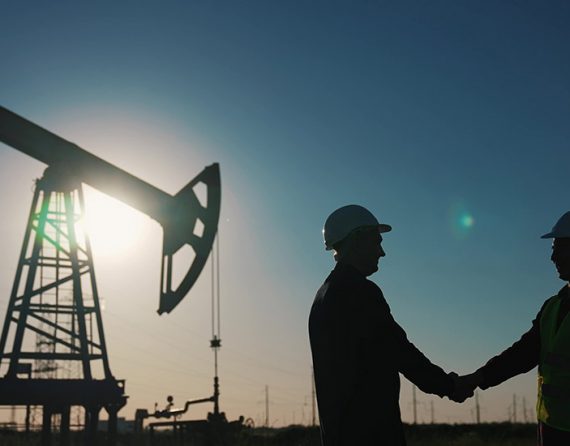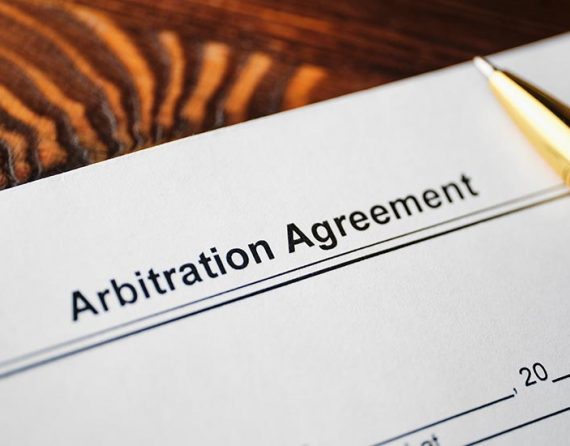The UAE Consensus at COP 28 - Key strategies to navigate climate change arbitration in the MENA region
Climate change is not only a global environmental challenge, but also a source of legal disputes, especially in the energy sector. With the recent announcement of the UAE Consensus at COP 28, which commits to ambitious climate change action including transitioning away from fossil fuels to achieve net-zero emissions by 2050, the context of these disputes is evolving rapidly. As countries and companies seek to reduce their greenhouse gas emissions, adapt to the impacts of climate change, and transition to cleaner sources of energy, they may face conflicts with their contractual partners, investors, or host states over the performance, termination, or compensation of their energy projects. These disputes may now increasingly arise from changes in regulatory frameworks, force majeure events, environmental liabilities, human rights claims, or low-carbon incentives, in alignment with global commitments like the UAE Consensus.
In the Middle East and North Africa (MENA) region, where energy is a vital economic and strategic resource, climate change arbitration may become more prevalent and complex, particularly in light of the recent UAE Consensus at COP 28. The Consensus, with its commitment to phasing out fossil fuels and tripling renewable by 2050, adds a new dimension to the region’s vulnerablility to climate change effects such as water scarcity, heat stress, sea level rise, and desertification. These climate change challenges may further impact the availability and reliability of energy resources and infrastructure. Additionally, the MENA region’s ongoing shift from fossil fuels to renewable energy is now more critical under the UAE Consensus framework, presenting both opportunities and challenges for energy producers, consumers, and investors. This shift is likely to lead to increased disputes related to the acceleration of renewable energy projects and decommissioning of fossil fuel-based infrastructure. Furthermore, the region’s diverse legal systems, cultures, and political dynamics are poised to play a significant role in howenergy contracts and treaties are interpreted and enforced, especially under new global climate change commitments.
The urgency to tackle the subject has been noted repeatedly by governments and businesses around the world. With COP 28 being held in the UAE, the MENA region manifests its will to cooperate by supporting the global climate agenda and shifting its consciousness towards sustainable development. The aim is to identify global solutions for the climate crisis that are collective and not individual, as the UN Climate Chief Simon Stiell stressed during the event: “One thing is for certain: ‘I win – you lose’ is a recipe for collective failure. Ultimately it is 8 billion people’s security that is at stake.”
How can parties involved in energy disputes in the MENA region effectively use arbitration as a dispute resolution mechanism in the context of climate change? Here are some key considerations:
- Choose the right arbitration rules and institution. Depending on the nature and scope of the dispute, parties may opt for different arbitration rules and institutions that offer specific features or advantages for climate change arbitration. For example, parties may prefer arbitration rules that allow for expedited procedures, emergency arbitrators, joinder of parties, consolidation of cases, or transparency of proceedings. Parties may also consider arbitration institutions that have expertise, experience, or presence in the MENA region, such as the Dubai International Arbitration Centre (DIAC), the Cairo Regional Centre for International Commercial Arbitration (CRCICA), or the Bahrain Chamber for Dispute Resolution (BCDR-AAA).
- Select the appropriate seat and venue of arbitration. The seat and venue of arbitration may have significant implications for the conduct and outcome of the arbitration, especially in terms of the applicable law, the availability of local courts, and the enforceability of the award. Parties should carefully assess the legal and practical factors that may affect their choice of seat and venue, such as the neutrality, stability, and accessibility of the jurisdiction, the quality and independence of the judiciary, the compatibility and reciprocity of the arbitration laws, and the adherence to the New York Convention or other enforcement treaties.
- Appoint qualified and diverse arbitrators. The arbitrators are the key decision-makers in the arbitration, and their qualifications, expertise, and diversity may have a bearing on the quality and legitimacy of the award. Parties should seek to appoint arbitrators who have not only the relevant legal and technical knowledge, but also the cultural and linguistic sensitivity, to deal with the complex and nuanced issues that may arise in climate change arbitration in the MENA region. Parties should also strive to promote diversity and inclusion in the arbitration tribunals, by considering arbitrators from different backgrounds, genders, nationalities, and perspectives.
- Engage with expert witnesses and consultants. Climate change arbitration in the energy sector may involve complex and multidisciplinary issues, such as the assessment of damages, the valuation of assets, the measurement of emissions, the evaluation of environmental impacts, or the projection of future scenarios. Parties may need to rely on expert witnesses and consultants who can provide credible and persuasive evidence and opinions on these issues, based on their scientific, technical, or economic expertise. Parties should also ensure that their experts and consultants are familiar with the arbitration process, the applicable law, and the regional context.
- Consider the public interest and social responsibility. Climate change arbitration in the energy sector may have broader implications for the public interest and social responsibility of the parties, the arbitrators, and the arbitration community. Parties should be mindful of the potential impact of their claims, defenses, and actions on the environment, human rights, and sustainable development, and seek to balance their private interests with their public duties. Arbitrators should also take into account the public interest and social responsibility in their decision-making, and apply the relevant principles and standards of international law and best practices. The arbitration community should also contribute to the advancement of climate change arbitration in the MENA region, by promoting awareness, education, research, and dialogue on the topic.
At Youssef + Partners, our expertise, experience, and vision to handle climate change arbitration in energy disputes in the MENA region is now more relevant than ever in the wake of the UAE Consensus from COP 28. We are a leading international arbitration law firm, with a strong focus on the energy sector and the MENA region. We have successfully represented clients in high-profile and complex energy disputes, involving oil and gas, power, renewables, and infrastructure projects, under various arbitration rules and institutions. We have also advised clients on the legal and strategic aspects of climate change and energy transition, and participated in thought leadership and policy initiatives on the topic. We have a diverse and dynamic team of lawyers, who combine international and regional qualifications, languages, and cultures, and who are committed to delivering excellence, innovation, and value to our clients. If you are facing or anticipating a climate change arbitration in the energy sector in the MENA region, we are ready to assist you and protect your interests.
Credits go to team members including Rama El-Guindy.
Stay Updated





